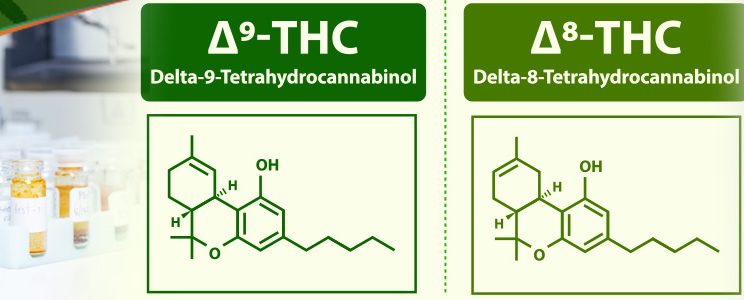Original Release Date: August 9, 2024
In the final episode of our Community-based Solutions for Substance Use Challenges season, Just Science sits down with Kristen Lee, Substance Use Program Coordinator at the Georgia Criminal Justice Coordinating Council, Lizann Roberts, Executive Director of the Coastal Georgia Indicators Coalition, and Tara Jennings, Strategic Planning Administrator for Chatham County Government, to discuss their COSSUP-funded Community Data Platform, which helps connect health and justice data for an individual, so that first responders can best meet their needs.
For individuals who frequently cycle through jails, homeless shelters, and emergency departments, there is a need to increase access to community resources to break the cycle of justice involvement and reduce the burden on first responders. In Chatham County, Georgia, the Community Data Sharing Program provides real-time data across public health and safety services, helping first responders gain a holistic view of an individual’s justice involvement and refer clients to the appropriate community resources. Listen along as Kristen, Lizann, and Tara discuss why they decided to use data sharing as a tool to better serve clients with a substance use disorder, how they addressed barriers such as data sharing and privacy concerns, and how the program has not only impacted participating clients, but also local first responders and policy makers.
This Just Science season is supported, in part, by RTI Award No. 15PNIJ-21-GK-02192-MUMU, awarded by the National Institute of Justice, and by RTI Award No. 15PBJA-23-GK-02250-COAP, awarded by the Bureau of Justice Assistance. Both are agencies within the Office of Justice Programs, U.S. Department of Justice.
View or download the episode transcript here:
Transcript
Episode Citation
Mullen, L., Lee, K., Roberts, L., & Jennings, T. (2024, August 9). Just Science. Just Public Health and Safety Data Sharing in Georgia. [Audio podcast episode]. National Institute of Justice’s Forensic Technology Center of Excellence. https://forensiccoe.org/podcast-2024-cossup-ep8/.
Guest Biography
Kristen Lee received her Bachelor of Social Work in 2008 and has since devoted her career to supporting children and families. She served as the Director of Forensic Services at the Southern Crescent Sexual Assault and Child Advocacy Center before joining the Criminal Justice Coordinating Council in 2020. Currently, Kristen represents three children in the Griffin Judicial Circuit as a Court Appointed Special Advocate. As the Criminal Justice Division's Substance Use Program Coordinator, Kristen manages the Comprehensive Opioid, Stimulant, and Substance Use Programs and the Residential Substance Abuse Treatment Grant Programs. She is actively involved in the Georgia Prescription Drug Abuse Prevention Collaborative, the Opioid and Substance Misuse Response Program, and serves on the board of the Georgia School of Addiction Studies. Kristen's favorite aspect of addressing the opioid crisis is collaborating with statewide partner
Lizann Roberts has over 35 years of experience in public health leadership and has focused her career on developing public-private endeavors to improve overall community well-being. She is a seasoned leader, facilitator, and coalition geek. Since 2017, Lizann has served as the Executive Director of the Coastal Georgia Indicators Coalition also based in Savannah. In 2021, she was named a Community STAR by the Savannah Technical College board and received an inaugural Community Peace Builder award with Mayor Van Johnson in 2022. Prior to serving non-profits, Lizann was a faculty member of two academic institutions, created employee development and health management programs for large multi-site organizations and designed comprehensive health improvement programs for two large health care systems. She holds undergraduate and graduate degrees in health education with leadership certifications from Georgetown University and The Center for Creative Leadership. Lizann serves on the board of Georgia Health Initiative.
Tara Jennings is the Strategic Planning Administrator for Chatham County Government. She is responsible for researching, developing, communicating, executing and sustaining strategic initiatives. Jennings supports the County Manager; balancing between advising and acting, with the responsibility of ensuring the execution of strategies to support the stated goals and priorities of the Board of Commissioners. In her role, Jennings supports various county departments and units of government in securing grants that align with the Chatham Community Blueprint and the strategic priorities of the Board. Much of Tara’s work involves complex issues, she has an unsurpassed ability to find the right people to work on even the most difficult problems. Some of her notable projects include implementation of Chatham County’s “Breaking the Cycle” initiative, working to reduce the number of individuals booked into the detention center with mental illness, reducing the recidivism rate for those who are homeless and or have co-occurring disorders; and Revitalizing the Continuum of Care for Chatham County. This work overlaps with the need to increase access to mental and behavioral health services, resulting in the opening of the Chatham County Behavioral Health Crisis Center and launching the Behavioral Health (co-responder) Unit. Jennings provides oversight to the County Blueprint Implementation Grant process whereby an average of $5 million dollars are invested in locally programming for direct services to support the needs of residents. In addition, Jennings serves as lead staff for implementation, management, and evaluation of the federally allocated funds for Emergency Rental Assistance Program and the American Rescue Plan Act-State and Local Fiscal Recovery Funds, managing more than $80 million federal grant dollars, implementing reporting matrixes, and ensuring compliance with all federal regulations.
The opinions, findings, and conclusions or recommendations expressed in this podcast episode are those of the presenter(s) and do not necessarily reflect those of the U.S. Department of Justice.
Contact us at ForensicCOE@rti.org with any questions and subscribe to our newsletter for notifications.




